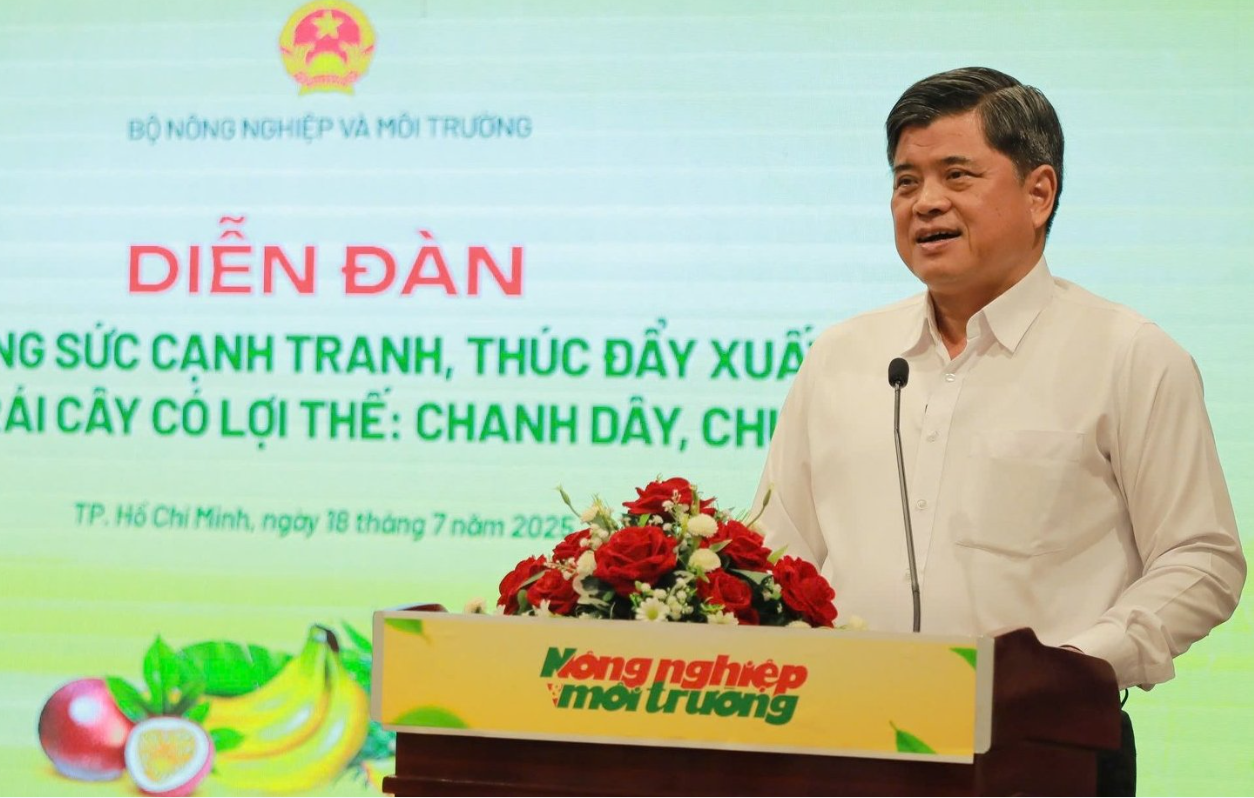On July 18, the Vietnam Ministry of Agriculture and Environment organized a forum in Ho Chi Minh City titled "Solutions to Enhance Competitiveness and Promote the Export of High-Potential Fruits". The discussion, chaired by Deputy Minister Tran Thanh Nam, aimed to identify strategies to elevate these four fruit products into billion-dollar export commodities within the next few years.
According to the Department of Crop Production and Plant Protection, Vietnam cultivates over 1.3 million hectares of fruit trees, yielding approximately 15 million tons annually. Bananas alone account for 161,000 hectares, with export turnover nearing USD 380 million in 2024, positioning Vietnam as the ninth-largest banana exporter globally. Vietnamese bananas have secured a presence in key markets such as China, South Korea, Japan, the EU, and the United States.
Coconuts cover around 202,000 hectares and surpassed USD 1.1 billion in export value in 2024, ranking among Vietnam's seven core agricultural export products. Meanwhile, passion fruit and pineapple, with more modest growing areas of 12,000 hectares and 52,000 hectares respectively, brought in USD 222 million and under USD 50 million in export value.
 Deputy Minister Minister Tran Thanh Nam particularly emphasized the great potential of the four types of fruits discussed at the forum: passion fruit, pineapple, coconut, and banana.
Deputy Minister Minister Tran Thanh Nam particularly emphasized the great potential of the four types of fruits discussed at the forum: passion fruit, pineapple, coconut, and banana.Deputy Minister Tran Thanh Nam highlighted the significant potential of these four fruits, representing approximately 420,000 hectares of cultivation and yielding over 6.3 million tons. He acknowledged the growing international demand but noted a considerable gap between Vietnam's production capacity and actual export revenues. "There is still much work to be done if we want bananas, passion fruit, and pineapples to reach the billion-dollar mark by 2026 or 2027," he stated.
One of the key solutions proposed by the Deputy Minister is a "technological revolution" in producing and processing these fruits. This includes standardized cultivation processes, enhanced product quality, deeper market integration, and increased investment in processing industries. The strategy requires coordinated action from industry associations, enterprises, cooperatives, and farmers.
Deputy Minister Nam also called for developing a comprehensive, large-scale strategic program to elevate these four fruits as pillars of Vietnam's agricultural export sector. The forum is seen as a critical first step toward enhancing Vietnam's fruit exports' global value and competitiveness.